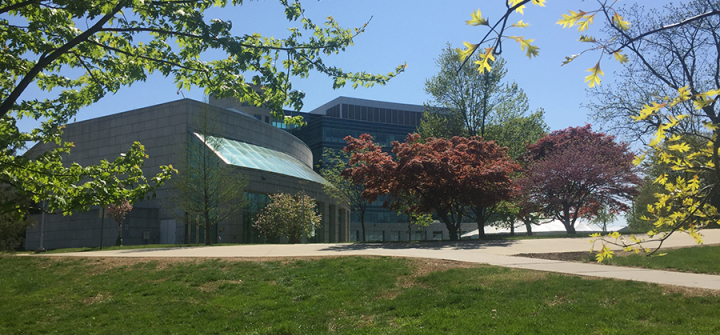Fogarty's 50 Years and New Frontiers
BETHESDA, MD—A young girl’s question at yesterday’s NIH Fogarty International Center 50th anniversary celebration framed the symposium’s quest to advance research into global health inequities.
She asked speaker Richard Horton, editor of the Lancet, why his daughter in the UK is likely to live 3 years longer than she will in the US, given different life expectancies around the world. He responded, “I think that one of the things that we’re talking about here … is that some societies have put health and well-being very high on their agendas and take very good care of their people. Other societies place more of an emphasis on the individual and less on society.
“I think that one of the great achievements of America is its fantastic success economically, its creativity,” he continued. “We don’t have Apple, we don’t have Google, we don't have Amazon in the UK and in Europe. One of the things I think we do have we do have is a stronger sense of society … a notion of what we’d call solidarity, that we’re in it for each other.”
In his keynote address, Horton emphasized that we have the means to address many of the challenges—he points to WHO chief Tedros Adhanom Ghebreyesus’s directive for universal health coverage as one example. But, “UHC is not a destination ... it’s a constant political struggle,” Horton said, and the “great progress we can make is built on very shaky foundations.” He recalled the unpredictable events—“episodes of stunning violence,” and viruses that have disrupted progress on life expectancy: the Rwandan genocide, HIV/AIDS, Ebola. And there are major constraints that can make the notion of UHC look like a utopia that we won't be able to deliver, especially in parts of sub-Saharan Africa, Horton said.
But what is often lacking is political will and funding. "I’m standing in a country that has reinstated the Global Gag Rule," Horton pointed out, adding that in order to realize UHC and sexual and reproductive health rights, "that needs to be brought to center stage—no matter how difficult it may be—and Fogarty Center has an important role to play." Throughout the day's panels, several other speakers, including Fogarty scholars posted around the globe, also noted that we have the tools ... now we need to act. More highlights included panels exploring the end of AIDS, a discussion on NCDs including a presentation from Malawi’s only oncologist, and a deep dive into research on global brain disorders. If you missed the event, the recorded webcast of the symposium will be available soon here.
Another benefit of a Horton speech is that he often shares intriguing reading suggestions, and he didn't disappoint yesterday. For his final offering, he suggested it might be a good time to revisit The Federalist Papers, featuring Alexander Hamilton’s reflection upon the relationship between an emerging America and a decadent Europe that "used force and fraud to exert its power." One of the great dangers of that power is that you only see the world through your eyes, as Hamilton cautioned. "Your Hamilton issued a warning, and it’s a warning that should be echoing through the hearts and souls of Americans today.
"The Fogarty Center,” he said, “stands for Hamiltonian values … values of partnership, of cooperation and most important of all, equality among and between nations.”
Join the tens of thousands of subscribers who rely on Global Health NOW summaries and exclusive articles for the latest public health news. Sign up for our free weekday enewsletter, and please share the link with friends and colleagues: http://www.globalhealthnow.org/subscribe.html
The NIH's Natcher Building in full spring glory, scene of the Fogarty at 50 Symposium in Bethesda, MD, May 1, 2018.





